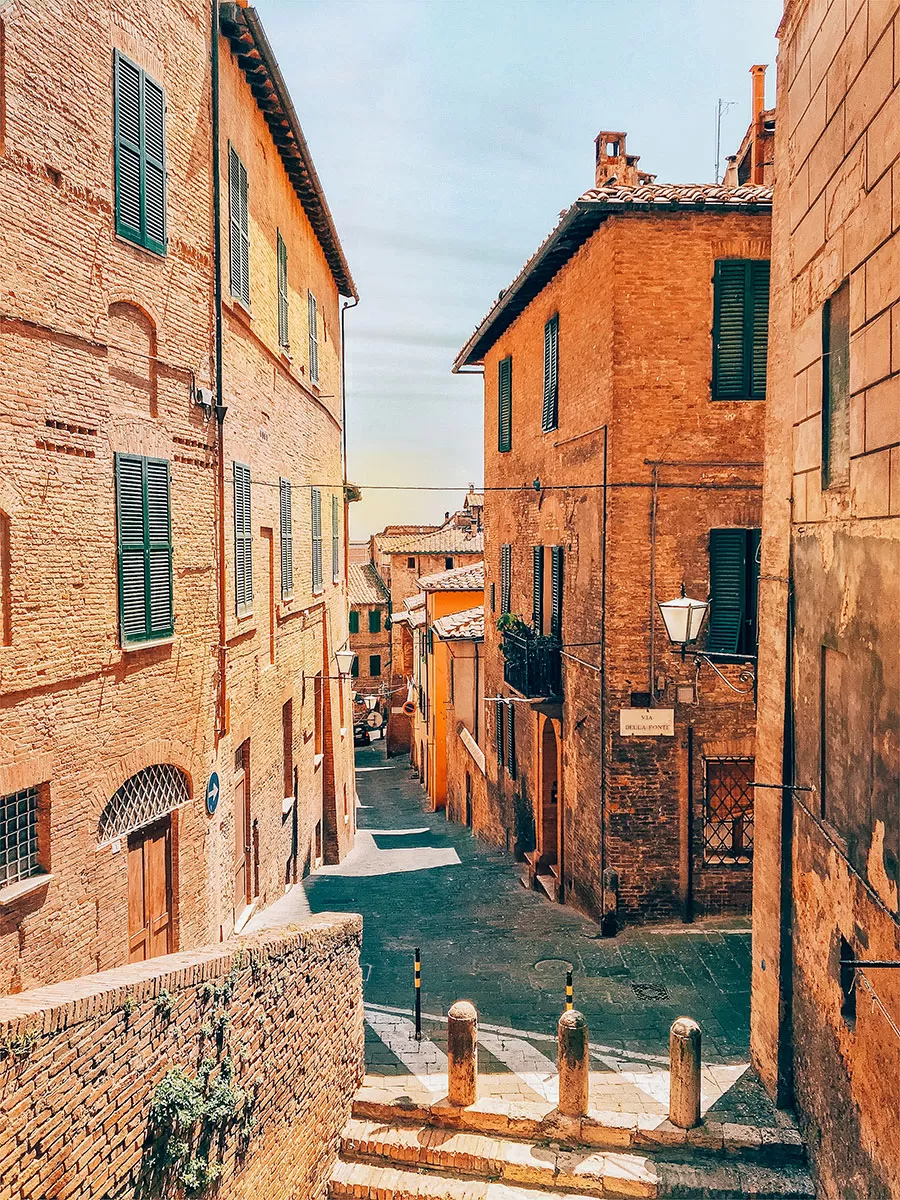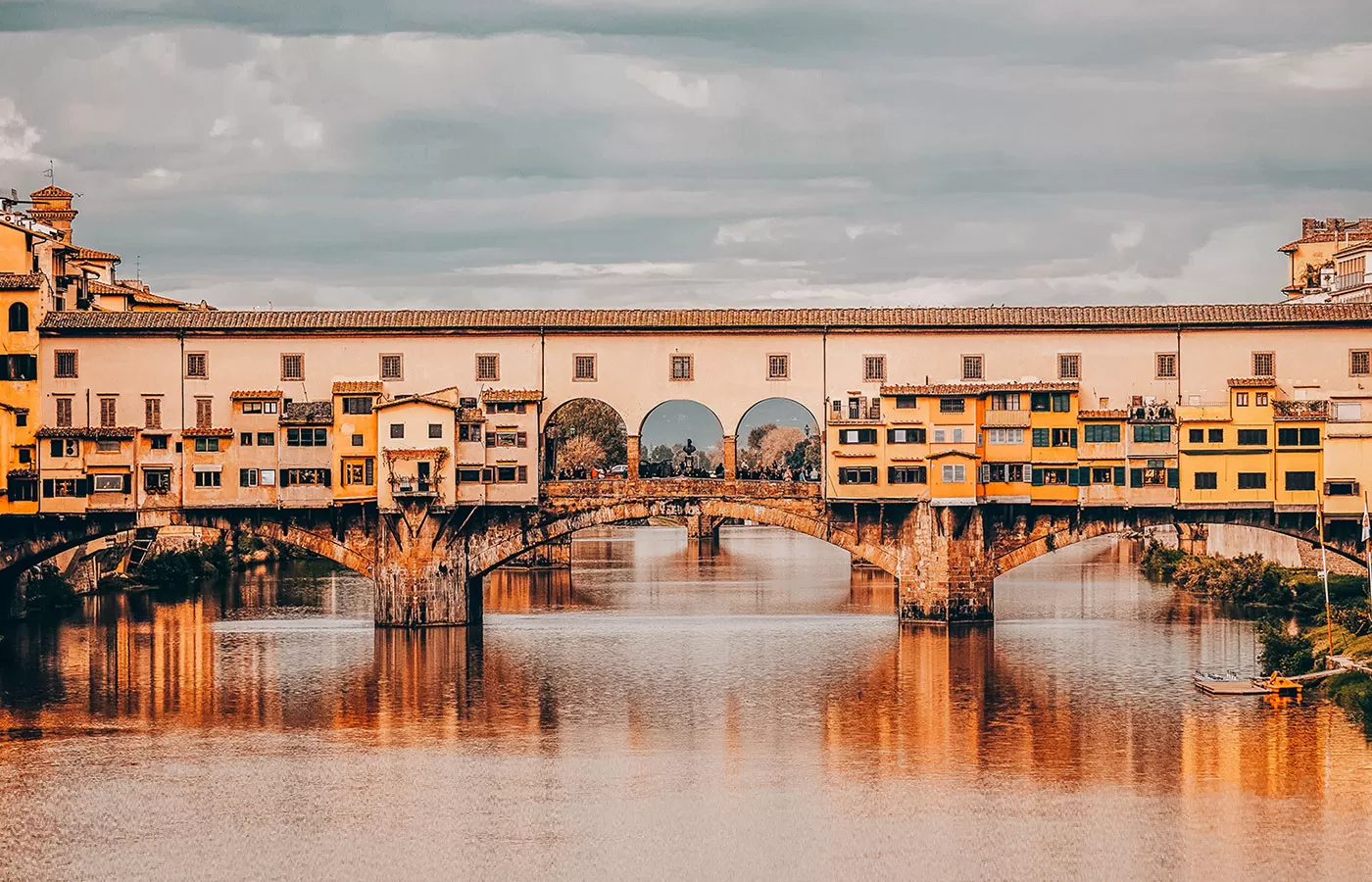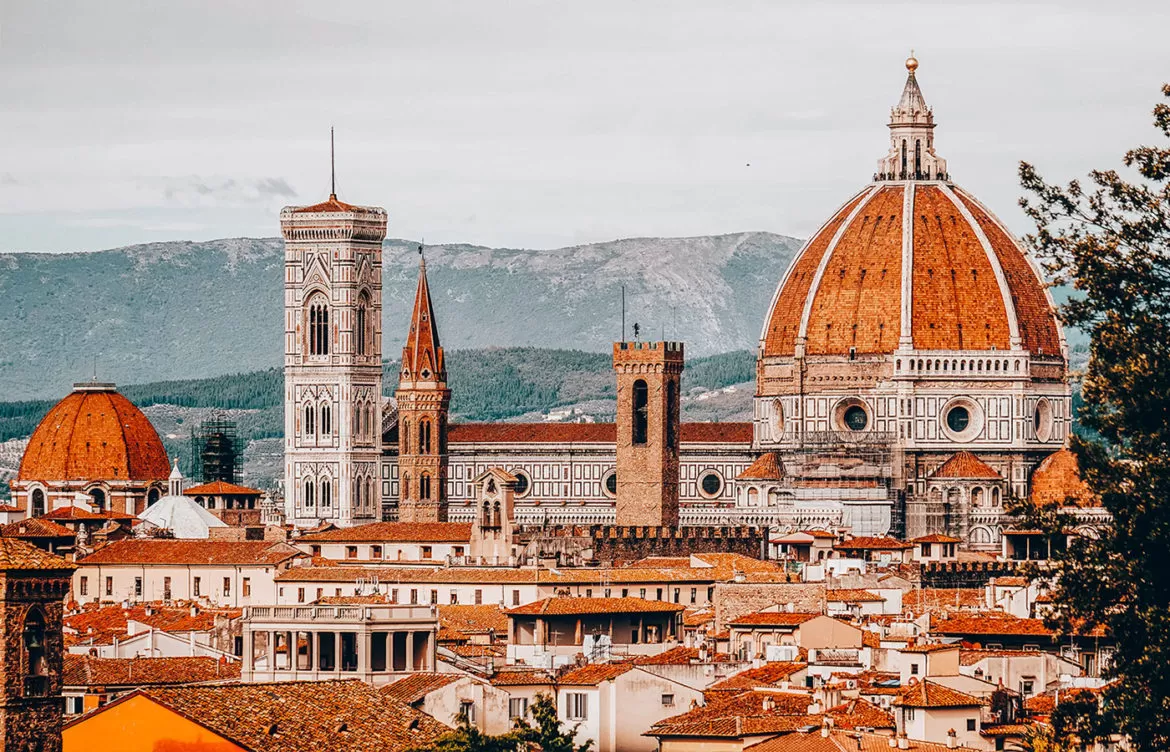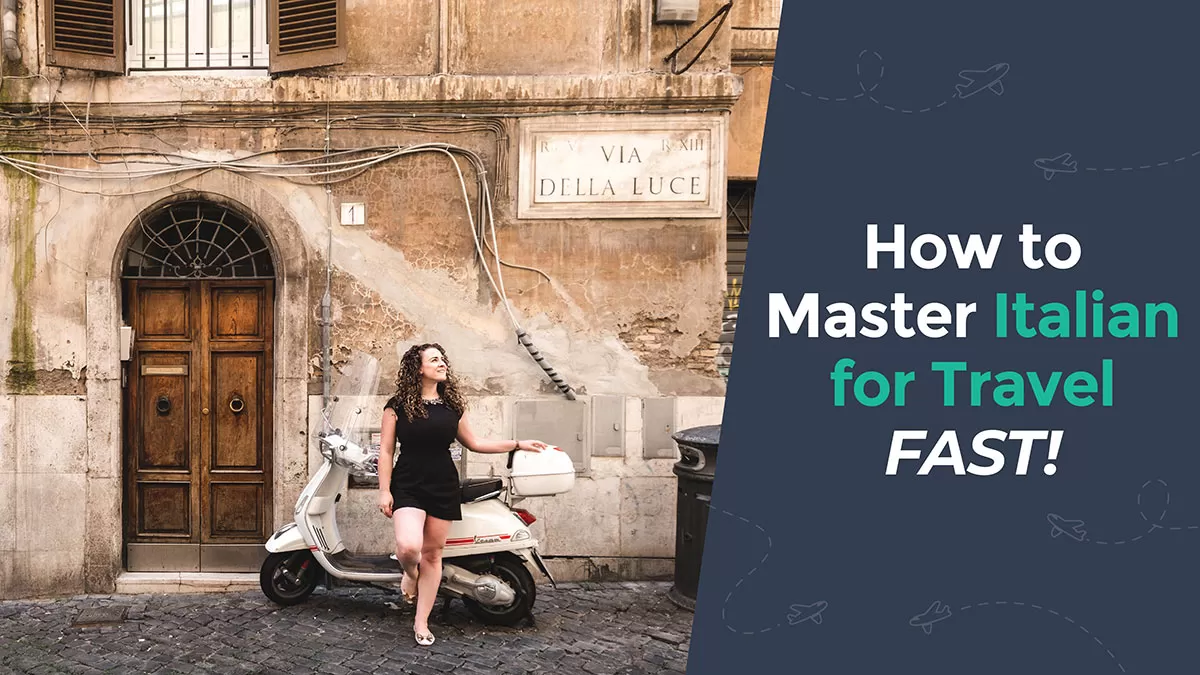Learning Italian? From false friends to tricky verbs, here are 14 things you should never say to an Italian and tips on what you SHOULD say instead!
Learning Italian isn’t just about remembering new words and how to pronounce them correctly, you also need to learn when it’s ok and not ok to say certain things. There are both cultural and social influences that you may not be aware of until you accidentally put your foot in it. Don’t worry! It’s all part of the learning process. Making a linguistic faux pas is normal when learning a new language and making mistakes in Italian is the best way to learn. This guide aims to help you avoid the most common things Italian students should never say in Italian. Here are 14 things you should never say in Italian and tips on what to say instead!
1. Know when to say “Ciao”
Even if you don’t speak Italian, most people know this widely used greeting which means both “hello” and “goodbye”. It’s so well-known that it’s used in 35+ languages around the world, including:
- Bulgarian: чао, chao (“goodbye”),
- Catalan: ciao, txao (“goodbye”),
- Czech: ciao, čau (“hello” or “goodbye”) and čau čau (goodbye)
- Dutch: ciao (“goodbye”)
- English: ciao (“goodbye”)
- Finnish: “tsau”, also “tsaukki” (“hello” or “goodbye”)
- French: ciao, tchao (mostly used to say “goodbye”). “Tchao” is slang in French.
- German: ciao, tschau (“goodbye”, in Switzerland also “hello”)
- Greek: τσάο, tsao (“goodbye”)
- Hebrew: צ’או chao (“goodbye”)
- Portuguese: tchau (“goodbye”), tchau tchau (“bye bye”), or tchauzinho (“little bye”); in Portugal xau is also used, without the “t” sound, especially in written informal language such as SMS or web chats
- Spanish: in Argentina and Uruguay the word chau is the most common expression for “goodbye”. In Chile, chao is the standard farewell. In Spain, where “adios” (with a religious etymology as “goodbye”) is the common expression, people can use chao as an original way of saying goodbye.
- Swiss-German: ciao/Tschau (“hello” or “goodbye”)
What most people don’t know is that Italian uses a formal lei (lay) and an informal tu (too) (you) way to address people. Native speakers reserve their ciao’s when speaking to someone they know well, usually friends and family. When speaking to someone they’ve never met before or someone with social rank such as a doctor, lawyer, police officer, Italian say salve (sal-ve) (hello), buongiorno (bwohn-jor-noh) (good morning) or arrivederci (ar-ree-veh-der-chee) (good-bye).
Related: 41 Italian Greetings: How to Say ‘Hello’ in Italian Like a Local
 2-3. Don’t translate literally
2-3. Don’t translate literally
Whilst I do enjoy translating Italian to English and use these often hilarious differences, like Italian idioms, to help be remember them, the Italian way of thinking about things and how they structure sentences can be quite different.
For example, Italians don’t prendere una foto (pren-de-re oo-na foh-toh) (take a photo), they fare una foto (fa-re–re oo-na foh-toh)(make a photo). They don’t avere colazione (ah-ve-re ko-la-tsyoh-neh) (have breakfast), they fare colazione (fa-re ko-la-tsyoh-neh) (make [and eat] breakfast).
4-9. Avoid Common “False Friends”
For all its similarities with English words, there are just as many “false friends” or false cognates in Italian to be aware of. A false friend is when a word looks and sounds alike between two languages, but actually means something completely different. Here are six of the most common Italian false friends you’ll encounter.
It Italian, educazione (eh-dooh-kah-tsyoh-neh), is used to describe your upbringing and manners; not your school education. The noun educato (eh-dooh-kah-toh) (masculine) and educata (eh-dooh-kah-tah) (feminine), translates to “polite,” “well-mannered”, or “well-behaved. If you want to discuss education, then use the word istruzione (ees-trooh-tsyoh-neh).
Feeling annoyed? Italians say they are scocciato (sko-cheeya-toh), infastidito (in-fas-tee-dee-to), or irritato (ee-ree-ta-to); not annoiato (an-noy-ya-to), which means to be bored.
When describing someone you have sympathy for, Italians don’t say simpatia (seem-pah-tee-ah), this actually means that you have a fondness for them and like them. Italian also say someone is simpatico (sim-pa-tee-ko) (masculine) and simpatica (sim-pa-tee-ka) (feminine) which means they are nice, kind, and funny. The Italian word for ‘sympathy’ is compassione (kom-pash-shyo-neh).
Fun fact: English kept the original Greek meaning of the word sympathy, which is “to suffer together.”
Can you guess what the Italian word preservativi (preh-zehr-vah-tee-vee) means? Well, it’s definitely got nothing to do with conserves or marmalade. It actually means condoms! I believe the word you’re looking for is conserve (kon-ser-ve) (preserve) (usually used in the plural) and marmellata (mahr-mehl-lah-tah) (marmalade).
When you describe someone as being sensibile (sehn-see-bee-leh), you’re not saying they’re sensible, level-headed, and reasonable, you’re saying they’re “sensitive.” Instead, use the Italian word ragionevole (rah-joh-neh-voh-leh).
When referring to an elderly person, instead of saying they are vecchio (m) (vehk-yoh) / vecchia (f) (vehk-yah) which means “old,” the politically correct term is anziano (m) (ahn-tsee-ah-noh) or anziana (f) (ahn-tsee-ah-nah). Only use vecchio when discussing objects such as a house or a book. You can, however, say things like un vecchio amico (oon vehk-yoh a-mee-ko) which means “an old friend” – someone you’ve known for a long time. But if you said, un amico vecchio, that means the friend is old.
Here some other Italian false cognates to keep an eye out for:
- brave = coraggioso / bravo = good, clever
- canteen = mensa / cantina = cellar
- camera = macchina fotografica / camera = room
- cold = freddo / caldo = hot
- fabric = tessuto / fabbrica = factory
- frizzy = crespo / frizzante = sparkling
- grass = erba / grasso = fat
- horse = cavallo / orso = bear
- library = biblioteca / libreria = bookstop, bookstore
- parent = genitore / parente = relative
- pavement = marciapiede / pavimento = floor
- polite = educato / pulito = clean
- vacancy = vuoto, posto vacante / vacanza = vacation
Want to learn Italian? Check out my book for absolute beginners which has received 5 stars on Amazon. Find out more about it here.
I must say that I was pleasantly surprised by the information in this book, and how useful it has been in making the next step to learning Italian. The chapter on “Italianising” English words is alone worth the 5 stars. I have been using free apps to this point, and they have been helpful, but the information in this book had moved me forward in my progress. I do recommend it, and would not have had I not thought it worth it. -Review on Amazon UK
Students loved the book so much that I even created an online travel Italian course. Learning Italian changed my life which you can read all about here and why I created this Italian language course that will transform your travels. Click here for more details and get instant access!
 10-12. Food Faux Pas
10-12. Food Faux Pas
Italian cuisine is well-known around the world and some communities have even made their own additions and variations to some of the most famous dishes. But, that doesn’t mean it’s authentic Italian cuisine and found in Italy.
When it comes to eating and drinking in Italy, there are certain things you just shouldn’t do or you’ll be met with an incredulous stare.
When it comes to coffee, a cappuccino (kaap-poo-chee-no) is only something Italian’s drink with breakfast (so anytime before 11:00 a.m) because it has milk in it. So, don’t go to dinner and order a cappuccino with your pasta, that’s the epitome of committing a food faux pas.
If you’re eating any type of pasta with fish or seafood, do not ask for parmigiano (par-mee-jah-noh) cheese to sprinkle on top. This would be like mixing orange juice with milk. Just don’t do it.
Italians also don’t put pineapple on their pizza either, and they certainly don’t eat spaghetti with meatballs. This is an Italian-American invention that immigrants created when they couldn’t find good-quality tomatoes. Instead, they added meat – which was cheap and readily available – to the sauce in order to make it sweeter and thicker. You can certainly find polpette (pol-pet-teh) (meatballs) on the menu but they are served either as a starter or a main course with potatoes, vegetables, or beans. But definitely not with pasta!.
Since we’re talking about food, here are 26 food-related Italian insults you should know.
13-14. “Know” when to “play” it safe
I’m no stranger to foreign languages having multiple words to say the same thing in English. Since I’ve started learning Norwegian, I’ve discovered it has 4 different words to say ‘think’, because according to Norwegians, there are different ways of thinking. Who knew?! This is just one of the 12 common mistakes Norwegian students make.
Italian is no different. In fact, there are two sets of commonly used verbs I used to mix up all the time when I started learning Italian.
Related: How to Conjugate Italian Verbs in 3 Simple Steps [Italian for Beginners]
In Italian, there are two verbs which mean “to play”, giocare (joh-kah-reh) and suonare (swoh-nah-reh) but they are used to describe different things. When playing a sport, game, or with children, you use giocare. For example, (lui) sta giocando a calcio (loo-ee sta jo-kan-do a kal-chyoh) (he’s playing football/soccer). The other type of play refers to playing an instrument or when something emits a sound like a doorbell or an alarm. For example, mi piace suonare il pianoforte (mee pe-yah-che swoh-na-reh eel pee-ah-no-for-te) (I like to play the piano).
The other verb that is easy to get mixed up is conoscere (kon-osh-she-reh) and sapere (sa-pe-reh). Whilst they both mean “to know”, the former is used when you’re talking about knowing someone, the latter is when you know a piece of information or know how to do something, like cooking or riding a bike. For example, lei non conosce lui (lay non kon-oh-sheh loo-ee)(she doesn’t know him), and Roberto sa cucinare bene (Ro-ber-to sa koo-chee-na-re be-ne) (Roberto knows how to cook well).
Have you said any of these? Can you think of any others you would add to this list? Let me know in the comments below.
Learn Italian with me, The Intrepid Guide!
Travelling to Italy? Don’t be treated like a tourist! Live your best travel experiences and learn Italian for less than the cost of eating at a tourist trap restaurant or a taxi driver who has “taken you for a ride”. In addition to my free Italian travel phrase guides, I’ve made it even easier for you to master the Italian language so you can create lifelong memories as you mingle with locals, get local tips, avoid tourist traps, and make new friends. Who knows you, you maybe even be invited over for afternoon tea by a lovely Sicilian family, like I was! Read all about how speaking Italian changed my life and check out The Intrepid Guide Languages courses here.
Here’s what my students are saying:

I really enjoyed the Master Italian for Travel FAST course, it certainly exceeded my expectations. The learning methodology is great, and easy to follow and found that I progressed much faster in the last 4 weeks than I ever did on my own or using other language apps. Grazie mille Michele, I can’t wait until I can put my new skills into action! – Roma Small
Click here for instant access!
Going to Italy? Download my free Italian Travel Phrase guide here.
Learning Italian? Check out these Italian language guides
- 11 Effective Hacks That’ll Help You Learn Italian So Much Faster
- Master Days of the Week in Italian (7 Simple Memory Hacks)
- Italian Numbers: How to Count in Italian From 0 to 1 Billion (Audio & PDF Download)
- 41 Italian Greetings: How to Say ‘Hello’ in Italian Like a Local
- Is Italian Hard to Learn? 7 Common Mistakes & How to Avoid Them
- 15 Italian Words You Should NEVER Mispronounce [& How Not To]
- 20 Hilarious Everyday Italian Expressions You Should Use
- 10 Reasons Why Learning Italian Will Change Your Life
- How to Learn Italian Before Your Trip
- 10 Italian Expressions Italians Love Saying
- 10 Italian Phrases That Will Instantly Make You Sound more Italian
- Funny Italian Sayings: 26 Food-Related Insults You Won’t Forget
- Master Basic Italian with these 63 Italian Travel Phrases
- 15 Romantic Italian Films That’ll Make You Love Italy Even More
Like it? Pin it for later
![Top Italian Words You Should Never Say [& What to Say Instead]]](https://www.theintrepidguide.com/wp-content/uploads/2020/04/Top-Italian-Words-You-Should-Never-Say.jpg.webp)
Want to know more about learning languages? Start here!
- 6 Language Learning Tips: How to Learn a Language from Home
- What Type of Language Learner Are You? Your 4-Step Personalised Learning Plan
- 15 Top Language Learning Resources You Should Use
- 44 Best Movies on Disney Plus for Learning Languages
- 13 Ways to Seamlessly Integrate Language Learning into Your Daily Life
- 10 Pro Tips: How to Learn a Language with a Full-Time Job
- 7 Reasons Why You Should Go on a Language Holiday
- Essential Travel Phrases: How to be Travel Fluent in 10 Simple Steps
- 23 Cool Gift for Language Learners They Will Actually Use and Love
- How to Learn Your First Foreign Language in 8 Simple Steps: A Beginner’s Guide
- 11 Life-Changing Reasons Why You Should Learn a Language
- 42 beautiful Inspirational Quotes for Language Learners
- Language learning tips: 11 Polyglots Reveal The Secrets of Their Success
- Top 10 Best Ways to Learn a Language Better and Faster
- How Many Languages are there in the World?
Don’t miss my Italy Travel Guides
- Top 10 Absolute Best Views of Rome That Will Blow Your Mind
- Top 10 Things to Do in Rome That Aren’t On Your List
- Visit Rome’s Secret Hidden Palace
- Rome Tips and Tricks: 27 Things You Should Know Before You Go to Rome
- Self-Guided Trastevere Walking Tour: Where to See Rome’s Most Beautiful Streets
- 26 Absolute Best Things to do in Verona, Italy
- Lakes, Mountains & Castles: 21 Best Things to do in Trento, Italy
Over to you!
Have you mixed up any of these words before? Can you think of any others you would add to this list? Let me know using the comments section below or join me on social media to start a conversation.
Thanks for reading and I hope you enjoyed this post.
Like what you see? Subscribe using the form below to have all of my posts delivered directly to your email.



4 comments
WOW…..that’s amazing. Now I understand why my relatives left Italy. My mother’s family came from Calitri, Italy. They no doubt said something that offended someone. (Joking) Its my dream to visit Italy one day and see Calitri as well as Assisi. Thanks so much for the video. (BTW…my Italian name is Giovanni. I was adopted when I was 3 years old and my name changed to Brent)
I’m laughing like a fool over here! My grandparents and father were Italian. My mother was born in the States, but learned very little Italian. By the time my sister and I were born, we learned nothing. But my mother would sometimes rattle off strange sounding truncated, Americanized Italian words, especially when scolding us. For example, she would call me a “Skooch.” I knew it was not a compliment, but now, nearly 60 years later, thanks to reading your article, I believe she was calling me “annoying!” LOL! Grazie! :-) Yeah, I probably was annoying!
My family is Australian of Italian heritage and when my younger brother went to Italy on an exciting pilgrimage many years ago, he sat down to lunch in a restaurant in Rome and enthusiastically expressed to the waiter how hungry he was… “Sono molto famoso!” he informed the bemused waiter. So you could definitely add that one to the list of things not to say to an Italian! Great article, thank you!
What a brilliant anecdote and a great lesson :) Thanks for sharing Angela :)